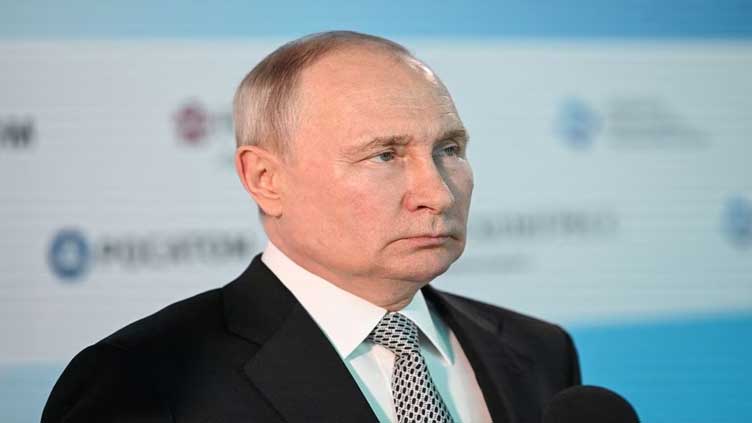Putin: foreign-made tanks are 'priority target' for Russian forces in Ukraine

World
Putin: foreign-made tanks are 'priority target' for Russian forces in Ukraine
MOSCOW (Reuters) - Russian President Vladimir Putin said on Thursday that Western supplies of weapons to Ukraine would change nothing on the battlefield but only further escalate the conflict, adding that foreign-made tanks were a "priority target" for Moscow's forces.
Putin, in comments to state television made after a NATO summit in which Ukraine won a promise of eventual membership, also reaffirmed his stance that such a move would threaten Russia's own security and escalate global tensions further.
"The supply of new weapons will only aggravate the situation... and will further fuel the conflict," Putin said.
Asked about France's decision to supply Ukraine with long-range cruise missiles which can travel 250 km (155 miles), Putin said: "Yes, they cause damage, but nothing critical happens in the war zone with their use."
Putin added that foreign-made tanks were "a priority target for our guys".
Western countries have supplied billions of dollars worth of arms to Ukraine since Russian forces invaded the country on Feb. 24, 2022, in what Putin calls a "special military operation" to "denazify" the country.
At a summit in the Lithuanian capital Vilnius this week, NATO leaders agreed that Ukraine should be able to join the military alliance at some point in the future but stopped short of offering Kyiv an immediate invitation.
G7 countries also unveiled an international framework for the long-term security of Ukraine to boost its defences against Russia and deter Moscow from future aggression.
In his first public response to the moves, Putin reiterated Moscow's strong opposition to Ukraine ever joining NATO, saying this would threaten Russia's own strategic interests.
"This will not increase the security of Ukraine itself. And in general it will make the world much more vulnerable," he said.
Any country has the right to improve its security, he added, but not at another country's expense.

